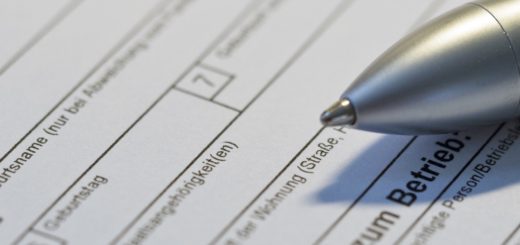Finding and Renting a Flat in Hungary
Renting a room or a flat in Hungary can be difficult for foreigners. Here are some tips to help guide you through this process.
Note: This article mainly focuses on Budapest, but a lot of it applies to other cities and to Hungary, in general.
Finding Flats
When to Look
In some cities (especially in Budapest), the time of year can have a huge effect on the difficulty of finding a flat. Budapest is a VERY popular destination for Erasmus students, so around the times that they arrive there is a shortage of flats, and a surplus of people willing to pay over market price, especially in the city center. If you can help it, don’t look for a flat in August/September or January. The best time to find a flat is around June, when many of the students are leaving.
How to Look
You have a few options when looking for flats in Hungary. Some are better than others, but it’s always good to cast a wide net.
- Ask friends
Obviously, if you have local friends, ask them if they know of any available flats. Often, they at least know someone who is moving out of a flat you might be able to rent. - Facebook groups
While the listings on Facebook are quite often overpriced, sometimes you can find something reasonable. Check these groups for flats and flatshares. I tried to stick to groups with over a few thousand members only, and you can probably tell these are only groups in Budapest.- BUDAPEST FLATS/APARTMENTS for RENT :: in-house
- BUDAPEST FLATS for RENT
- Rent a flat / room in Budapest
- Budapest flats and apartments for rent
- Budapest flats
- BUDAPEST / SEMMELWEIS & FLATS & ROOMS
- FLATS FOR ERASMUS IN BUDAPEST
- BUDAPEST FLATS
- Flats, flatmate, rooms, roommate in Budapest
- Flats FOR RENT • Budapest apartments
- Budapest flats for rent
- Shared flats, rooms, sublet, accomodation Budapest
- ALBÉRLET 2018 BUDAPEST kiadó lakások – APARTMENTS 2018 – Flats for RENT
- Budapest flats & rooms
- FLATS for RENT/SALE in BUDAPEST
- Budapest/Semmelweis flat rental & shared flats group
- Rent a FLAT / ROOM in Budapest for Semmelweis, ELTE, CEU, Erasmus etc
- Hungarian websites
There are 2 primary Hungarian websites that are very useful. They are only in Hungarian, but you can use Google Translate or a friend to help you navigate them. - Rental Agencies
There are good and bad agencies in Budapest. I prefer to stay away from agencies, but I’ve rented a flat in Budapest using an agency, and I’ve rented a flat in Budapest directly from the owner, and each situation had its advantages and disadvantages.
I don’t want to list any specific agencies here, but they are easy enough to find with a Google search, and many of the posts you see on Facebook and the websites listed above are posted by agencies anyway.
Where to Look
What part of the city (or countryside) do you want to live in? Budapest is the most expensive city in the country (other than some areas around Lake Balaton). Like most other places, you’ll pay more to live in the city centers than in the outer districts or suburbs.
I can mostly only speak to Budapest, and the kinds of place you’ll be likely to find in the city. In Budapest, many flats are in buildings that are about 70-120 years old. These older apartment buildings in the city center have large courtyards. You’ll find flats that face the courtyard, flats that face the street, and flats that face both. In flats that face the street, watch out for street noise, especially along the körút (main boulevards, “ring road”) or other large streets and in popular party districts (specifically the eastern half of the VI. and VII. district). If you’re concerned about street noise, check the area at different times of the day and night. This can even change with the seasons though, as some areas have large groups of noisy tourists in the summer but are quieter during the winter.
Other Notes About Finding Flats
Flats are usually rented fully furnished.
Only “rooms” are listed; not bedrooms. Bedrooms are usually called “separate rooms”, meaning that you don’t have to walk through them to get to another room.
Since many older buildings were built with very high ceilings, built lofts are popular. Some bedrooms might have the bed in a loft, and some studios might have a “living room” with the “bedroom” in a lof above it.
Lease Contracts and Paying Rent
What You’ll Pay For
In Hungary, in addition to rent, you’ll sometimes have some other fees you’ll have to pay. Sometimes they’ll be lumped into one, and sometimes they’re listed separately. It’s important to know what they are, so you can figure out how much you’ll pay in the end.
Rent
This is an obvious one, but I’d like to mention it for one reason: currency. It’s common to list ads for flats in Euros, but contracts can be in Euros or on Hungarian Forints.
Common Costs
In apartment buildings, this is an amount that goes to the building association for upkeep of building common areas, the outside of the building, the external doors and entry system, and outside cleaning. Sometimes water is included with this.
Water
Sometimes water is included in the common costs, sometimes it is a separate, flat fee, and sometimes it’s done through the utilities.
Cable TV / Internet
Some flat owners will keep it under their name, and others will let you handle it on your own. Most buildings have one or two providers you can get service from. These are usually Digi, T-Mobile (Telekom), or UPC. Before you move into a building, check to see what kind of service you can get there. NOT ALL BUILDINGS CAN GET “HIGH SPEED” INTERNET.
Utilities
Flat owners usually keep utilities like electricity, gas, and water under their name. You will send them the meter readings every month and they will tell you how much you owe. Sometimes a meter reader will come to check the readings, but this only happens every 6 months or so.
Contracts
Official vs. Unofficial
Many landlords will not want to give you an official lease, because they often don’t pay taxes on it. If you’re a foreign student or you’re getting a residence permit, you probably need to have some kind of documentation stating that you have somewhere to live for the duration of your residence permit. One option is to have an “accommodation courtesy agreement” which states where you are living and that you have the right to live there for a period of time. The period of time for the lease or accommodation courtesy agreement should be at least the period of time you are requesting a residence permit for. You will only get a residence permit through your lease validity. A good option here is to get an “indefinite” term, where either party can cancel with a certain amount of notice. The immigration office sees this is just being indefinite. If the landlord wants a guarantee of at least a year, put in the contract “an indefinite period of at least one year”. I have heard of people having 2 documents, a lease which says they pay monthly rent, and a separate “accommodation courtesy agreement” which says they stay for free.
Term
If you’re a student for one semester, you’ll probably want to have a lease for just 4-5 months. There are lots of students in Budapest, so that’s not hard, but you’ll pay more than average. Most leases are for a one year term, but my favorites are for “an indefinite period of at least one year”.
Language
Contracts are often in both English and Hungarian, but the Hungarian one is usually the official one.
Witnesses
For a Hungarian contract to be legal, it has to be witnessed by 2 other people, who sign their name and include their ID number.
Other notes
When signing a contract in Hungary, the signatories include their name, place and date of birth, and mother’s maiden name.
Living in a Flat
Getting Mail
Post boxes are usually near the entryway of the building. When you move in, make sure to affix your name to the post box. It is also best to have the floor and apartment number on it. This is in the format 3/14 or III/14, where 3 (or III) is the floor number and 14 is the apartment number.
If you get a package through the post office, you can expect to get a notification, and you’ll have to take this to the post office to pick up your package.
Bell
The bell will have the flat owner’s name on it. Sometimes you can get a label and put your name over theirs. The bell number won’t necessarily relate to the floor or door number. You’ll usually get a code and/or key fob to open the outer door, and you might also get a key that can open the outer door(s) without a code.
There you have it. If I think of anything else, I’ll add it. If you have any questions or if I got anything wrong, post a comment and I’ll try to address it.







Comments